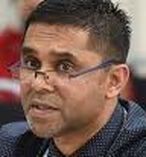"There is evidence that FICAC has, in fact, become something of a personal tonton macoutes for the AG – a Fijian version of the feared special operations unit set up by the Haitian dictator, “Papa Doc” Duvalier, to control his own country in the 1960s. Whereas the DPP only prosecutes after a formal police investigation and solely on the basis of the public interest and whether there is a reasonable chance of securing a conviction, FICAC is both investigator and prosecutor and has none of the same constraints. There is no judicial or other independent oversight of its operations, nor even the most basic internal oversight for that matter. Since it was established in April 2007 soon after Frank Bainimarama seized power, it has never had a commissioner as the equivalent of chair to oversee its operations and act as a buffer between the FICAC deputy commissioner as CEO and the government. So the deputy commissioner has a great deal of power but little in the way of supervision and accountability. The current FICAC Deputy Commissioner is Rashmi Aslam, a Sri Lankan who is obliged by a little-known clause in the 2013 Constitution to report directly to the Attorney General, Aiyaz Sayed-Khaiyum, in a way that doesn’t apply under the Constitution to the DPP."

We demonstrated in Part 1 last week how the Attorney General, Aiyaz Sayed-Khaiyum, has breached accepted standards of corporate probity in countries like Australia and the United States by stacking the board of the Fiji National Provident Fund (FNPF) with individuals who support him. And in doing so, now has the numbers to access FNPF member funds for whatever further plans he has to weather the Covid-19 crisis. The conflicts of interest of some of these individuals – and especially the FNPF Chair, Daksesh Patel – are glaring and would not pass scrutiny by corporate regulatory authorities or meet accepted community standards in many other countries (see our postscript below on how a government-owned corporation in Australia defines “conflict of interest”). Yet in Fiji, it passes virtually without comment.
Daksesh Patel’s role in chairing both the FNPF and Energy Fiji Limited when $220-million recently passed between them is especially egregious. He has a close personal relationship with the AG and is a donor to the FijiFirst Party. And to any genuinely independent eye, the circumstances suggest that the AG installed him as FNPF chair – along with other supporters on the board – for the advantage of the government to make it easier for him to access the retirement savings of the Fijian people.
Anywhere else, this would be regarded as a clear breach of corporate governance standards, not least because the conflict of interest is so obvious. Wearing, in this instance, the two hats of seller and buyer simultaneously, would not be permitted in other jurisdictions. It is certainly an indictment of Fiji’s current regulatory framework. And it should be only a matter of time before Daksesh Patel relinquishes either or both positions, if only to protect his reputation in Australia and the US, where he holds senior corporate positions.
Yet as we’ll see in Part 2 of our series this week, the appearance of conflicts of interest and nepotism have become routine in Fiji under the AG’s tutelage. Daksesh’s Patel’s conflict of interest is just the tip of a large iceberg that is only now starting to melt under closer scrutiny in the warm waters of the South Seas.
I’d undertaken this week to examine the long list of corporate appointments to government boards, some of them multiple appointments, as well as the civil servants delegated by the AG to sit on those boards as his eyes and ears. But I’m rolling this over to a future date to be able to concentrate this week on the power he wields through FICAC – the Fiji Independent Commission Against Corruption – to control the business community in Fiji and the multiple conflicts of interest of Aiyaz Sayed-Khaiyum’s own family.
Among these is that of Mahmood Khan – the AG’s uncle on the Council of USP, the University of the South Pacific – so it has particular relevance to the unfortunate events that are currently ripping the USP apart. And warrants this particular conflict of interest taking precedence over others that may be just as egregious but can wait.
More on the USP debacle later. Yet dig deep in Fiji and there are conflicts of interest at almost every turn. Most if not all of them seemingly engineered by the Attorney General to his advantage as only he can do after 14 years of ultimately controlling the economic levers of power in Fiji through the patronage of the Prime Minister, Frank Bainimarama. With that patronage, the AG wields unquestioning authority and routinely uses this power for political advantage.
FIJI’S CLIMATE OF FEAR
Talk privately to most corporate players in Fiji and they will tell you that the dominant sentiment in the business community at the present time is fear – fear of being targeted by the taxman – the Fiji Revenue and Customs Service (FRCS) – fear of the Fiji Competition and Consumer Commission (FCCC) or fear of the Fiji Independent Commission Against Corruption (FICAC) – the shadowy corruption watchdog that has become a parallel prosecution arm to that of the Director of Public Prosecutions and gives every appearance of being only as independent as the AG tells it to be.
There is evidence that FICAC has, in fact, become something of a personal tonton macoutes for the AG – a Fijian version of the feared special operations unit set up by the Haitian dictator, “Papa Doc” Duvalier, to control his own country in the 1960s. Whereas the DPP only prosecutes after a formal police investigation and solely on the basis of the public interest and whether there is a reasonable chance of securing a conviction, FICAC is both investigator and prosecutor and has none of the same constraints.
There is no judicial or other independent oversight of its operations, nor even the most basic internal oversight for that matter. Since it was established in April 2007 soon after Frank Bainimarama seized power, it has never had a commissioner as the equivalent of chair to oversee its operations and act as a buffer between the FICAC deputy commissioner as CEO and the government. So the deputy commissioner has a great deal of power but little in the way of supervision and accountability.
The current FICAC Deputy Commissioner is Rashmi Aslam, a Sri Lankan who is obliged by a little-known clause in the 2013 Constitution to report directly to the Attorney General, Aiyaz Sayed-Khaiyum, in a way that doesn’t apply under the Constitution to the DPP. It’s worth citing the relevant section – Section 115, Clause 9 – to understand its importance and how the AG is in a position, with the force of law behind him, to influence the operations of FICAC to the extent of it being genuinely “independent” only in name.
“The Commission shall provide regular updates and advice to the Attorney-General on any matter relating to its functions and responsibilities”, reads Clause 9.
So Rashmi Aslam and the AG have regular meetings that are prescribed under Fiji’s supreme law. Yet this constitutional provision is what is known among lawyers as the classic “reverse clause”. Because at these meetings, it is also reasonable to assume that as well as being provided with updates and advice, Aiyaz Sayed-Khaiyum is also able to give advice and direction to Rashmi Aslam as FICAC Deputy Commissioner.
All this means that there is no judicial or other independent oversight to prevent the corruption watchdog from being sooled onto the government’s opponents for political purposes. And the evidence for this goes beyond its failed prosecutions of such luminaries as the Opposition leader, Sitiveni Rabuka, with the perceived aim of trying to knock him out of contention in the 2018 election.
A prominent business figure of my acquaintance who served on government boards knew he had fallen out of favour with the AG but was nonetheless stunned to get a phone call from his office saying that FICAC investigators were on the premises conducting a raid. The business figure in question rang his line minister offering his immediate resignation. The startled minister professed to know nothing about it and undertook to make some enquiries. Sometime later, the minister rang back, telling the business figure – without explanation – not to worry and that it was the end of the matter. In the absence of any explanation, the only conclusion the business figure could draw was that it had been a warning shot across his bows not to cross the AG again.
It is this kind of capriciousness by the corruption watchdog that prompted the Military Council – in Point 5 of its 26-point plan for reform of the government that Grubsheet revealed three weeks ago (September 10) – to call for an overhaul of FICAC, including the removal of Rashmi Aslam as Deputy Commissioner. “FICAC Office needs to be independent and Rashmi Aslam must be removed”, it said. “Lots of negativity has arisen out of him for the government”, Point 5 concludes. The Military Council seems unaware that Aslam is more likely than not in these circumstances to be conducting himself at the behest of the AG.
Yet FICAC is far from being alone in taking its cue from Aiyaz Sayed-Khaiyum. So do the tax collectors at FRCS, who have been under intense pressure to drag in as much revenue as possible to make up the budget shortfall caused by the AG’s overspending in the lead-up to the 2018 election. By the end of 2018 – a senior source has told Grubsheet – 300 Fijian businesses had been fined $50,000 each for alleged breaches of the taxation regulations. So the combination of FICAC and FRCS is a powerful tool for keeping the business community compliant and under the AG’s control, as is the constant surveillance of the pricing police from the FCCC.
The base line is that smart business people in Fiji keep the AG sweet. Cross him and all kinds of nasty things can happen. The same applies to accepting positions on government boards. When the call comes, the recipient is expected to say “yes”. Those who do and carry out the AG’s wishes prosper. Those who don’t are deemed to be outside the circle of trust and cannot expect any favours. Any Grubsheet reader who doubts this need only ask the nearest business person of any consequence in Fiji. Out of earshot, of course. If he or she is lucky enough not to be under pressure, they will certainly know someone who is.
It is in this insidious manner – away from the public gaze – that the FijiFirst government controls the business community, dispenses favours to its supporters and punishes those who aren’t. Which is why business confidence in the government – once at an all-time high after the 2014 election – has been steadily eroded and needs to be rebuilt if the FijiFirst government is to regain the trust of the business community in the lead-up to the 2022 election. The government needs to show a genuine commitment to proper standards of governance – without fear or favour – and genuine transparency and accountability, as opposed to the lip service to these principles paid by Aiyaz Sayed- Khaiyum.
Having once preached against nepotism on the part of his predecessors, the AG is no stranger to nepotism himself – whether it is an extra contract for Qorvis at Energy Fiji Limited or government contracts for the Vatis team of Arnold Chanel and Daniel Whippy – who worked with the AG on the FijiFirst election campaign. All done without tender. Yet some of the most glaring nepotism has been in relation to the AG’s own family – the patronage and favour enjoyed by the Khaiyums, the Alis and the Khans.
The AG’s aunt, Nur Bano Ali, has raised eyebrows in social circles by describing herself and her immediate relatives as “Fiji’s real first family because Aiyaz runs the government”. While that may be news to the Bainimaramas and Konrotes, it may well be true to the extent of the Khaiyum-Ali-Khan clan demonstrably putting its interests first.
KEEPING IT IN THE FAMILY
The AG’s brother, Riyaz Sayed-Khaiyum, had no discernible business or management experience when in 2007, he was brought back from New Zealand – where he’d been working as a television journalist – to head the national broadcaster, FBC, now renamed the Fijian Broadcasting Corporation. Riyaz had also been a TV journalist In Fiji and won a degree of celebrity for his coverage of the George Speight rebellion in 2000. He later moved to Auckland and became a member of the team of reporters on the Asia Downunder program at Television New Zealand.
The program website described him as having been the resident “funny man” of the team, celebrated by his colleagues for “always trying to make them laugh”. But ever since Riyaz returned to Fiji after the Bainimarama takeover, the joke has arguably been on the Fijian people –the CEO of their national broadcaster unashamedly flouting the principle of being above politics whilst on the public payroll.
In fact, Riyaz played a key role in both FijiFirst election campaigns – in 2014 and 2018 – at his brother’s side as an active member of his campaign team. As I have reported before, that team in 2018 also included the businessman Sanjay Kaba – who is on the board of the FNPF with Daksesh Patel – and the Fiji-born Auckland businessman, Robert Khan, who has benefited from the relationship with his directorship of the Walesi broadcast platform.
Riyaz is said to be popular with his staff and has certainly expanded the FBC’s reach. But he has one of the biggest conflicts of interest of all in Fiji. Because while he heads the taxpayer funded national broadcaster – and clearly ought to be non-aligned politically – he has been flagrantly partisan in favour of his brother and the FijiFirst Party.
Wearing his two hats as outwardly independent FBC chief and clandestine strategist for the governing party, Riyaz Sayed-Khaiyum has displayed a distinct lack of judgment along with his lack of impartiality. He told me, for instance, that there was no chance of Lenora Qereqeretabua ever making it to the parliament in 2018 when she is now one of its stars. And as I’ve reported, he also rang me after the 2018 election campaign asking me to lobby the Prime Minister to make the AG deputy prime minister, which after he’d taken the government to the brink of defeat was wishful thinking in the extreme.
The AG’s brother also demonstrably influences the editorial output of the FBC to favour the government’s position over that of the opposition parties and any perceived critic. The opposition parties routinely find themselves at a disadvantage with the national broadcaster’s news coverage – not as glaring as with the AG-controlled Fiji Sun – but biased nonetheless. I experienced this myself last week when the Prime Minister attacked me for allegedly peddling gossip when I had actually broken news of significant national importance.
The FBC story reporting the PM’s attack ignored the substance of my disclosures that the Military Council has called for reform of the government, including the removal of the AG, and that Frank Bainimarama had nominated his successor as Inia Seruiratu. The same happened at the Fiji Sun but only the Fiji Sun gave me any opportunity to respond to the PM’s attack, though relegating that response to the letter’s section of the paper. Even though I sent the response to FBC News, it ignored it altogether. And the attack on me is still on its website (“PM slam claims by ex-Qorvis worker”) without any opportunity for me to respond, as is required by law.
It is the publicly owned and funded national broadcaster as the plaything of one family – the AG as the responsible minister and his brother as its CEO – manipulating a state-owned instrumentality for their own purposes and that of the FijiFirst government. As conflicts of interest go, it doesn’t get much worse.
With no experience of running airports, Riyaz Sayed-Khaiyum was also appointed Executive Chairman of Air Terminal Services Fiji in 2017 and soon became embroiled in an industrial dispute that generated significant public protest at the same time as the government was preparing to fight the 2018 election. The political timing was disastrous. But the hard line against the union that Riyaz took on his brother’s behalf blew up in their faces when a judge subsequently overturned his decision to lock out ATS workers and awarded them the payments they had been demanding.
Riyaz Sayed-Khaiyum’s poor judgment was more recently on display in June when he admitted that he had provided a secret camera housed in a pen to an informant who had claimed that he could obtaining incriminating recordings of members of the opposition. It was an astonishing admission by the head of the national broadcaster that he had actually participated in a conspiracy to entrap elected members of the parliament. It wasn’t even his journalists on the news team carrying out the operation purportedly in the public interest. It was the CEO of FBC giving a secret recording device to a shadowy figure of no reputation or standing in a partisan exercise to shame the opposition – he and his brother’s political opponents.
It ought to have made Riyaz Sayed-Khaiyum’s position at FBC untenable. Yet however grave the conflict of interest inherent in his position – overtly partisan in favour of the ruling party yet on the public payroll – Riyaz soldiers on. He will not survive a change of government and on the evidence, wouldn’t survive this one if it had a skerrick of judgment itself. Yet instead, the government has guaranteed close to $9-million dollars of the FBC’s debt courtesy of brother Aiyaz. Nepotism and conflict of interest writ large.
Mahmood Khan has been in the Fijian media in recent days protesting that being related to Aiyaz Sayed-Khaiyum is beside the point in his conduct as the Fijian Government’s Representative on the Council of the University of the South Pacific. But it is very much the point when there is a concerted effort on the part of the AG and his uncle to remove the Vice Chancellor and President of the USP, Professor Pal Ahluwalia.
Mahmood Khan’s protestations to FijiVillage that his actions on the Council have no relation to his relation wouldn’t fly with a conclave of village idiots let alone the staff and students of the pre-eminent academic institute in the region. The chartered accountant is Fiji’s official representative and Chair of the USP’s Audit and Risk Committee charged with bringing the USP to heel and has a massive conflict of interest as a result.
The USP saga is astonishing on a number of levels – the Fijian government’s apparent reluctance to pursue allegations of misconduct against the former Vice Chancellor, Rajesh Chandra, who was known to be close to the AG; the government doing everything it can to dislodge his popular successor, Pal Ahluwalia, against the objections of other Pacific governments and USP staff and students. And now, Fiji withdrawing the balance of its funding to the university until it gets what it wants. All at the instigation of Aiyaz Sayed-Khaiyum, who is now so blind to the appearance of conflict of interest that he shamelessly installs his uncle on the USP Council to drive the government’s agenda.
There is a history to the AG’s attitude to USP that is little known. In my experience, he has always had a set against the university, displaying a degree of resentment that USP isn’t a Fijian institution but a regional one and that Fiji is obliged to share governance of the university with other Pacific nations. The AG has moved mountains to try to bolster the Fiji National University (FNU) as a competing institution, a genuinely Fijian seat of higher learning as opposed to an amalgam of Pacific nations supported by Australia and New Zealand. So he has no reason to support USP and every reason to reduce its importance in favour of the FNU. In worsening economic times, the AG has gone cap in hand to encourage Australia to provide financial support to FNU, though this is said to have been resisted.
Yet the Fijian Attorney General’s action last week in cutting off Fiji’s financial contribution to USP is extraordinary. It is a slap in the face for regional solidarity and the principle that has underlined USP right from the time it was founded half a century ago on the Laucala campus – the former Royal New Zealand Air Force flying boat base that was a gift from the departing Kiwis. This was the ideal of a genuinely Pacific centre of higher learning in which Fiji may have been the host but was first among equals only in size and population – the notion that for this ideal to work, everyone must have a voice in the “Pacific Way”. It was a concept first enunciated by Fiji’s founding statesman, Ratu Sir Kamisese Mara, that no one country should dominate its Pacific neighbours and use its relative strength to muscle them into silence or into line.
Unfortunately, this is not the way of Aiyaz Sayed-Khaiyum, who with his withdrawal of USP funding, has gravely offended Fiji’s other Pacific partners and for what? To try to get his way in terms of the administration of USP? By any standard, It is a feeble and small-minded objective with an eye on the short term at the expense of something much greater, which is Fiji’s stature in the eyes of the region and certainly the academic world. Whether the AG gets what he wants remains to be seen. But his “Fiji first” attitude and the FijiFirst’s government’s lack of sensitivity for the USP’s other stakeholders damages Pacific solidarity when the climate threat and threat to our oceans makes the strengthening of those ties a regional imperative.
It is the same attitude to Fiji’s neighbours that produced the AG’s budget announcement that Fiji is closing its high commission in Port Moresby while keeping open its mission in Abu Dhabi. Papua New Guinea remains the largest economy among the island nations, there are hundreds of Fijians working in PNG and trade between the two countries has never been greater. Yet a diplomatic presence in the Arab world is regarded as more important than one in the Pacific. So is it any wonder that the AG seems so little troubled by offending Fiji’s partners at USP?
And there is another element – the recklessness of potentially offending Fijian young people of voting age and their parents at a time when the FijiFirst government’s fortunes are in decline and the polls show most people now expect Sitiveni Rabuka to supplant Frank Bainimarama as Prime Minister in the 2022 election. How many Fijian votes are in the AG’s foot stomping at USP when ordinary Fijians see the education of their young people being used as a political football? None. So it is not only reckless in terms of the damage to Fiji’s regional ties but reckless in the threat it poses to FijiFirst’s electoral position.
There is yet another, more personal, dimension. Aiyaz Sayed-Khaiyum and other Indo-Fijian ministers like Faiyaz Koya have always believed that their dealings with officials from some Pacific nations have been coloured by prejudice against them for “not really being Pacific islanders” – members of an immigrant race insensitive to consensus-based decision-making in the “Pacific way”. Could this be a factor at USP? Those in the university’s psychology department may be able to say. But given the circumstances, the USP standoff is more likely to fuel that perception than convince Fiji’s Pacific neighbours otherwise.
This debilitating power struggle for control of the university must be brought to an end. If there has been wrongdoing at USP, an obvious question emerges. Why hasn’t FICAC been called in to investigate? Because it has so far shown a great reluctance to get involved. The AG’s uncle pleads his case in the media about his perceived conflict of interest at USP with a plaintive “yes, I’m related to the AG but what does it matter?” Lots. It’s called nepotism and conflict of interest. And it’s even more of a concern when Mahmood Khan’s nephew, Aiyaz Sayed-Khaiyum, has also engineered his appointment to the board of the taxman – the Fiji Customs and Revenue Service – and to the Public Service Commission, that oversees and makes appointments of permanent secretaries and sets policy for the Civil Service.
Yet aside from Uncle Mahmood and brother Riyaz, there’s yet another glaring conflict of interest involving the AG’s family over at his favourite university – FNU.
Nur Bano Ali is the AG’s aunt and is one of the most prominent and controversial business figures in Fiji. She is married to Zarin Khan, the brother of Mahmood Khan, who is also a partner in her business, PKF Aliz Pacific. (“Chartered Accountants and Business Advisers”)
As is obvious from the number of boards on which Nur Bano sits, her tentacles of influence spread through Fiji’s business, academic, social and fashion milieus. She is admired and loathed in equal measure – admired for such things as her promotion of women in business and loathed, and feared, for her high-level connections and the determined manner in which she wields that influence.
It’s said in Suva that anyone wanting to do business in Fiji can benefit from using Nur Bano Ali’s company to oil the wheels of access to the top of government. Her close relationship with her nephew, Aiyaz Sayed Khaiyum, obviously opens doors that are closed to others.
Educated by the Methodists at Jasper Williams High School, Lautoka, Nur Bano trumpets herself as “the only Fijian practising accountant with a PHD”. Her thesis from the University of Waikato in New Zealand was on development finance, using the Fiji Development Bank as a case study. So she is obviously qualified to be on the FNU Council and her business expertise is undoubtedly an asset to the university. But she is still the AG’s aunt and that inevitably raises the same questions about her independence at FNU as those that swirl around her brother-in-law at USP.
Nur Bano is highly litigious to the extent of spending nine years in the courts suing the Auditor General for the contents of a report in 2010 that questioned the transparency of the restructuring of the Rewa Dairy and specifically named Aliz Pacific and Nur Bano Ali in a finding that government procurement procedures had been breached. She and the company sought an injunction in the High Court restraining the Auditor General or his agents from publishing any reports pertaining to Aliz Pacific and Nur Bano Ali in relation to the Rewa Dairy and removing references to “doubt on transparency”, “government procurement procedure breached” and “transparency questionable” in the documents. When the case failed, they took it to the Court of Appeal but lost again in a decision delivered last November. All of which leaves lingering questions about the probity of what happened in relation to the Rewa Dairy.
There are also questions of a conflict of interest arising from the fact that before the return to parliamentary rule in 2014, Aliz Pacific had the job of paying the salaries of ministers in the Bainimarama regime, including the Prime Minister and the AG. An Auditor general’s report in 2011 said a total of $1.8-million had been expensed for minister’s pay through Aliz Pacific from a budgetary allocation controlled by the Ministry of Finance without any supporting documents. And to this day, there has been no explanation as to why this arrangement was necessary or any record of how much Nur Bano Ali’s company was paid to be the ministerial paymaster.
But while it’s impossible to piece together the precise details of the Rewa Dairy affair and Nur Bano Ali’s arrangement to pay the PM and AG during the dictatorship, other conflicts of interest are obvious. As President of the Fiji Chamber of Commerce and Industry, Nur Bano Ali became the sole conduit between the business community and her nephew, the Attorney General, in the deliberations about how the government should respond to the Covid-19 crisis. Nur Bano Ali organised the “consultation with business” in Suva at which corporate players were given the opportunity to provide the AG with input. And she then did a round of media appearances indicating how pleased the business community was that the AG’s aunt had provided a forum for her nephew to suggest ways in which he could spend the public’s money to combat the Covid crisis. There seems to be no sense of self-awareness at all by either party that it is hardly the best of looks.
But it is even more egregious when Nur Bano Ali appears as a commentator – wearing her Chamber of Commerce hat – on Riyaz Sayed-Khaiyum’s FBC. Here is her nephew giving his aunt a platform on the state broadcaster to comment favourably on his brother and her other nephew. Yep. As conflicts of interest go, it’s the trifecta. And there is no sign at all of any of the parties thinking “mmm, maybe that’s not such a good look”. Because that’s what invariably happens when people have wielded power and influence for too long. Nepotism and conflict of interest become entrenched.
THE CASE FOR CHANGE
In the coming month, I’ll be returning – as promised – to this theme to examine some of the other figures in business serving on government boards. Some obviously do it out of a sense of duty to the community. Others are hoping to use their influence in government or connections with figures in authority to try to obtain favours or preferential treatment. The absence of transparency in the selection of these boards and the fact that they are chosen by one man is far from being in the national interest. Because even the appearance of influence peddling is highly damaging to business confidence and investment.
The Prime Minister, Frank Bainimarama, is rightly credited with creating a level playing field in which all Fijians – irrespective of ethnicity or religious affiliation – enjoy equal rights in law. But we also need a level playing field in business for a healthy economy in Fiji and on the evidence, there isn’t one.
In its call for reform – which the government still hasn’t publicly acknowledged – the Military Council specifically calls for an end to Aiyaz Sayed Khaiyum’s stranglehold on government, including its relations with the business community. Point 9 of the 26-point plan – calls for board appointments to be taken out of the AG’s hands and for “respective ministers to appoint members of boards with the approval of the Prime Minister”. And Point 12 calls for the “appointment of a PM’s think-tank of no more than 10 persons from various sectors” to break the AG’s monopoly on providing advice and to give Frank Bainimarama a broader perspective beyond the funnel of just one man.
The Prime Minister would do well to heed the wisdom of his military colleagues as soon as possible – plus a significant portion of his cabinet – and reform the government from the top down. Because the proof is there in the most recent Fiji Sun-Western Force opinion poll that his old nemesis, Sitiveni Rabuka, has never been a greater threat to his leadership and his legacy. And time is running out to make the changes that are needed for Frank Bainimarama to have any realistic chance of beating him.
Next time: Some 50th Independence anniversary specials, including the inside story of Aiyaz Sayed-Khaiyum’s attempt to change the flag.
POSTCRIPT: What actually constitutes a conflict of interest? Grubsheet readers may be interested in the following guidelines issued to employees of a major Australian government-owned corporation. By these standards, conduct in both the public and private sectors in Fiji falls well short of the mark, including in those instances cited in our story.
Conflicts of Interest:
Broadly, a Conflict of Interest exists where your financial, personal or other interests, or your position, affects your objectivity or independence in relation to business decisions. There are three different types of conflicts of interest:
- Actual: direct conflict between your official duties and a competing interest or obligation, whether personal or involving a third-party.
- Perceived: where it could reasonably be perceived that a competing interest could improperly influence the performance of your official duties.
- Potential: where you have an interest or obligation, whether personal or involving a third- party, that could conflict with your official duties in the future.
Examples of conduct that constitutes a breach of your duty to avoid conflicts of interest
- Benefitting, or knowing that you or a friend or relative may benefit from an activity the company is involved in (or where a reasonable person thinks that you may be personally influenced by something the company is involved in, this is a perceived conflict).
- Maintaining a personal relationship with a business contact that may actually or potentially affect (or may be perceived as affecting) your impartiality.
- Having personal beliefs that influence your impartiality.
- Using business information that you have acquired through your work for personal gain.
- Having a second job that compromises your integrity or impacts on your ability to perform your employment impartially.








